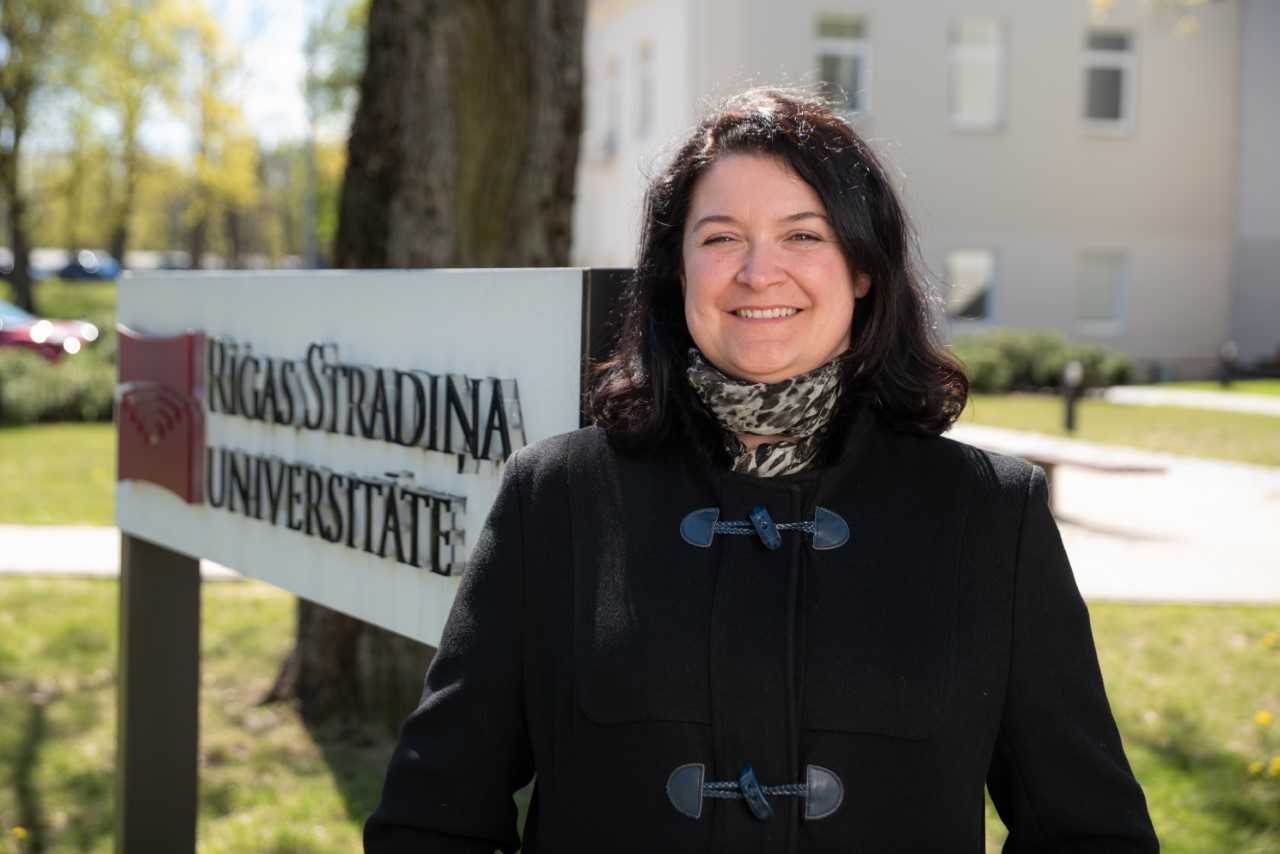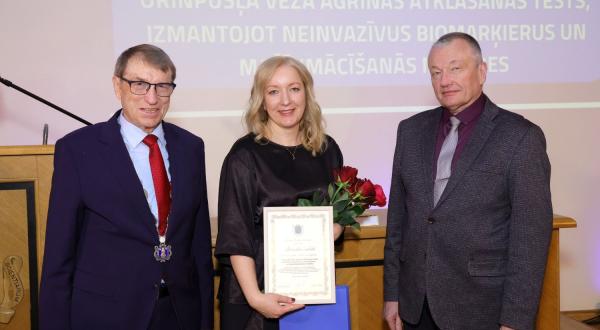Liene Ņikitina-Zaķe, Director of the Research Department: RSU’s Research Capacity Needs to Increase
‘The greatest task this year is to draft a five-year research development strategy for the university,’ says Liene Ņikitina-Zaķe, Director of the Rīga Stradiņš University (RSU) Research Department. She has worked intensively in the field of science at the Latvian Biomedical Research and Study Centre for many years, received the L’Oréal grant for a genetic study of rheumatoid arthritis, led the genetic diagnostics laboratory GenEra and has now joined the RSU science development team.
‘RSU provides a great opportunity to carry out interdisciplinary studies,’ says Liene Ņikitina-Zaķe referring to the work that needs to be carried out to foster the development of research at the university. ‘We have to promote research mobility, exchange of information and ideas among research groups at RSU, increase the number of high-level publications and doctoral theses defended by doctoral students and motivate students to engage in research.’
Balancing work and family life, Liene has also been studying in the RSU Health Communication programme for the two years. ‘I wanted to study something completely different from medicine. While studying, I confirmed my suspicions that communication is not only one of the main components of success in business, but also in science in order for researchers to get the support and understanding of society at large.’
What has the research department achieved since you became director?
This has been a "warm up” period – I am actively getting to know my peers at RSU, and the work that different departments do. I am compiling information on the way RSU functions, the strengths and weaknesses, previous scientific work carried out at the university and how this was managed.
My first task was to make sure that RSU passed an international evaluation of scientific institutions as this will affect numerous science-related aspects and the university’s status. The evaluation was carried out in the fields of medicine and public health at the beginning of March, and I think that we did a good job. We showed our scientific experience, maturity and richness at the highest level.
Studying SARS-CoV-2 and COVID-19 are currently topical issues. We have summarised ongoing and potential projects by RSU researchers, and we’ve found a lot. In the near future, we will post this information to the intranet so that our colleagues can be able to come up with ideas for cooperation and add new projects.
Research is one of the university's strategic priorities. What are the most important scientific developments at RSU?
Our direction is clear: the science capacity needs to be increased. This means increasing the number of high-quality publications, doctoral students and theses. But to do this, researchers need time to explore, think, experiment, collect data and analyse it. The work that needs to be done is to promote researcher mobility, as well as the exchange of information and ideas among RSU research groups, arrange their financial, material and technical resources and use them rationally, and provide researchers with time to compile the acquired data and draft publications.
My previous experience shows that it is very difficult to achieve good results if there isn’t much time to dedicate to research. The system for intensifying researchers' work and its remuneration should therefore also be reviewed.
We should also work on developing a system that would motivate students to engage in research, join research groups, develop their research papers and pursue doctoral studies that would lead to defending their theses and continue developing their research at RSU. Training young researchers and creating succession is important.
The biggest task to get done this year is to agree on the main directions for the future development of science at RSU together with our researchers – to draft a five-year research development strategy for RSU.
You have had several research related work experiences. What makes the research environment at RSU stand out?
There are very experienced researchers at RSU and the number of publications keeps growing each year. RSU has a high-level research infrastructure and researchers highly appreciate their university’s reputation and enjoy working here.
The research environment at RSU is very versatile. There are three research platforms that supplement each other – medical, public health and social sciences. This gives us a great opportunity for multidisciplinary research and looking at problems from both medical and social sciences perspective.
RSU hasn’t, however, had many such projects to date. I hope that we will manage to bring together researchers representing different platforms and that the number of multidisciplinary studies at RSU will keep growing. Cooperation and research quality are a driving force of science.
What is it like to be a woman in science combining family, administrative and scientific work, studying, hobbies and leisure?
For the last three years, I am no longer actively involved in research. My current task is to help others in their quest to successful scientific research, using my local and international experience.
I believe science needs smart, active and talented people regardless of gender. I checked UNESCO's statistics on demographics in the R&D sector – in Latvia, women represent half of the staff in this sector, but the leading positions at scientific bodies are more likely to be held by men. Scientific achievements do not depend on gender. What matters are the circumstances that individual people face and the choices they have to make.
It is no secret that your priorities change after having children. Many women no longer dedicate as much time to science, and resign themselves to less active scientific work, and, instead of becoming leaders, they devote more time to their children and invest their energy in their future. You can, however, combine successful scientific activities with having a family if your family is supportive. Luckily, I have a wonderful husband, fantastic parents and a sister. Having such strong support team has always helped me to overcome any difficulties.
In recent years, when stress and overwork became a normal part of my work, I discovered the perfect hobby – cycling. Nothing clears your mind like nice bike ride.
Quick questions
What is the most important thing in your life?
My family.
What is happiness to you?
To be in harmony with yourself.
Is there anything you are scared of?
I really cannot stand heights.
What are the top travel destinations you would recommend to others?
Personally, I would like to return to Morocco and Portugal. But to others I would recommend cycling across Latvia.
Your favourite books?
If we are talking about fiction it is The Unbearable Lightness of Being by Milan Kundera and The World According to Garp by John Irving.
I can still remember my childhood excitement as I flipped through human anatomy atlases by Sinelnikov in my father's library. I also enjoy reading famous scientists’, politicians’ and others’ biographies. I have always been interested in genetics and I often had to explain it to people from other fields so popular science books often came in handy – for this I would recommend Genome: The Autobiography of a Species in 23 Chapters by Matt Ridley, The Seven Daughters of Eve by Bryan Sykes, and Power, Sex, Suicide: Mitochondria and the Meaning of Life by Nick Lane.
What did you want to become when you were a child?
I wanted to be a doctor. I changed my mind the moment I first entered a laboratory.
What kind of music do you like?
All kinds. I looked at my Spotify statistics and Chet Baker tops the list. Second and third place are shared by The Prodigy and Groove Armada. At the moment, I often listen to Billie Holiday. When I work, I usually play Amon Tobin, Chicane, Hybrid, or M83 in the background.






